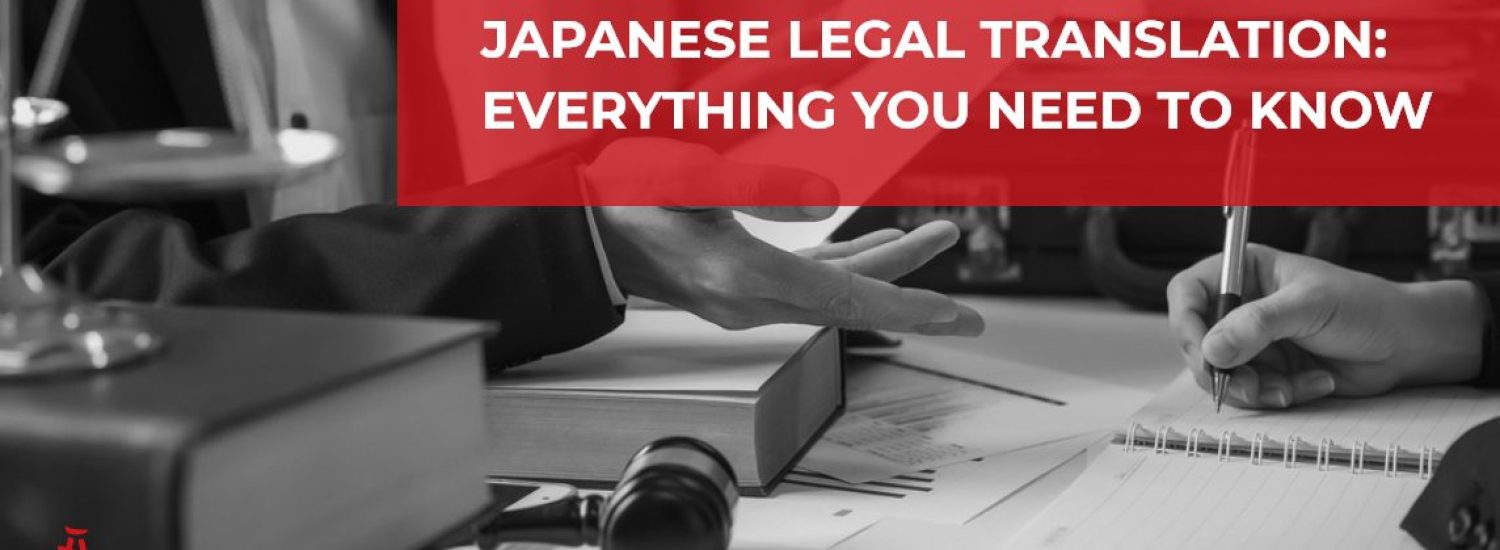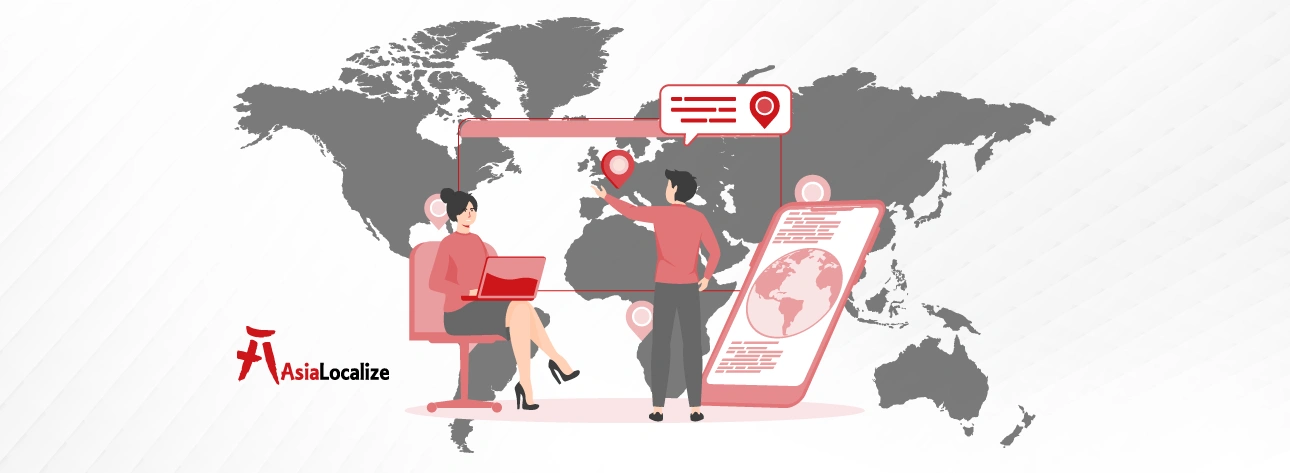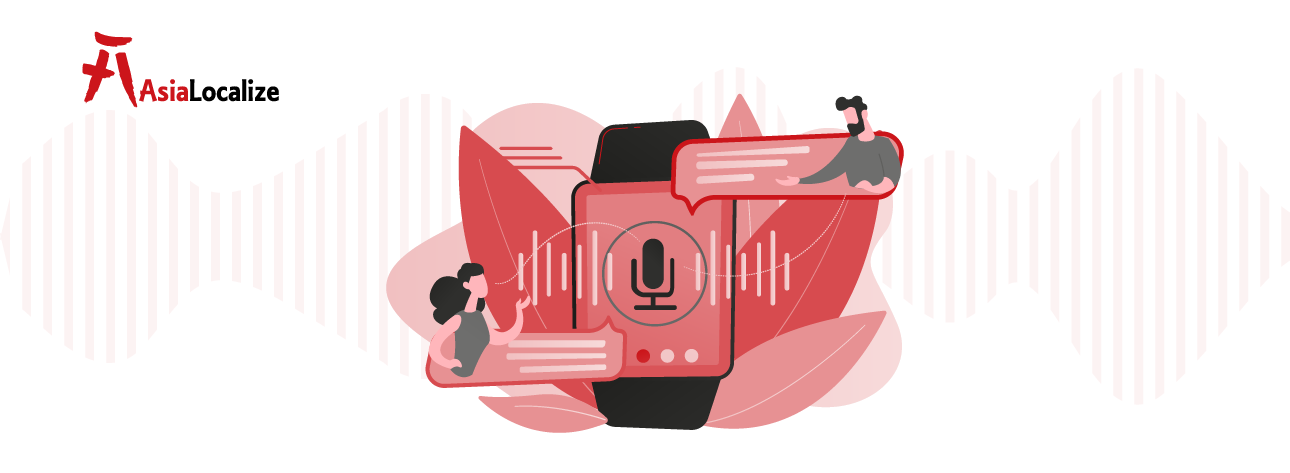Growing your business in an international market can be daunting, and the Japanese market is no exception. With a handful of things to consider, communicating with the people of the country/region and meeting its legal requirements should be on the top of your priorities. This is where Japanese legal translation plays a significant role.
If you plan on relying on one of your Japanese-speaking employees, being bilingual is not enough to properly translate a Japanese legal document. What you need is a language service provider that boasts language mastery and essentially deep regulatory expertise. A high-quality Japanese translation provider knows how to compare the legal systems of your source and target countries and understand your documents specific cultural and formatting requirements.
And it would be unwise, and risky even, to leave your Japanese legal translation projects in the hands of an individual, especially when the success of your expansion plans relies heavily on the quality and integrity of your business communications. In this guide, we will dive into:
Let’s get started.
What Is Legal Translation?
In the context of international business expansion, these documents constitute protection in the framework of the legal system, as they are necessary to guarantee your rights, regulate your company’s operations, and ensure your organization’s adherence to the laws and regulations of the target country, in that case, Japan.
It’s exactly what makes Japanese legal translation a key ally for expanding companies. It helps keep your business in conformity with applicable laws and regulations, driving compliant, risk-free expansion in the Asian region.
Whether your business activities concern trade, opening branches or headquarters in other countries, licensing deals, vendor management, or obligations to different states, language services are crucial to doing business at scale and quality is non-negotiable.
Even a small translation error can have serious consequences for your company. Something that seems like a simple misunderstanding can cost you a lot of money and time, and even irreversibly hinder your expansion strategy. It’s not worth it.
Why Invest in the Asian and Japanese Market?
Here’s a quick glimpse into the Japanese market:
- Asia is undergoing a process of profound change.
According to the World Economic Forum (WEF), the Asian economy accounted for the world’s largest GDP in 2020. The WEF also estimates that, by 2030, this continent will contribute 60% of annual global growth. Although the region’s economies tend to have some systemic problems such as poverty or a certain lack of infrastructure, its dynamic growth and the perseverance of its governments are achieving astonishing results.

- Another interesting phenomenon in Asia is the accelerated globalization of its companies.
Firms such as Huawei, Kao, Suntory, and Indofood are increasingly expanding in the region and the world. In this context, it is also worth noting that Southeast Asia alone accounts for approximately 30% of global economic activity, which is reflected in the Regional Comprehensive Economic Partnership (RCEP), today’s largest free trade agreement. Thanks to this agreement, the flow of capital, goods, and people will increase, which will open up new challenges and opportunities.

- Japan, for its part, is the great economic miracle of the second half of the 20th century and one of the most influential economies in the international arena. It’s the world’s fourth-largest economy.
One of the first advantages of this country is that it does not have the typical problems of other Asian countries (poverty and lack of infrastructure). Its quality of life stands out in the region. Education, health, and transportation are some of its strengths.
However, its most important challenge for the future is definitely demographic. For this reason, one of its most interesting movements is the progressive opening to immigration, which can make this country even more attractive to settle in. With immigration, Japan will be able to seize extraordinary human capital.
- Japan has a very diversified economy and cutting-edge technological development. From shipbuilding to artificial intelligence and, of course, entertainment, Japan has the virtue (and the challenge) of being the most complex economy in the world, according to the Economic Complexity Observatory.
- Beyond the regional projection, Japan itself is a market of 127 million people. The population as a whole maintains a high purchasing power, which makes them a really attractive target consumer. In addition, as we mentioned, the educational level of the country is very high, so you will not lack well-trained and skilled labor for the activity you want to develop.
This is just self-evident. The lucrative Japanese market is a golden ticket to guaranteed investment success. You must be wondering, what’s the catch? Well, there might be! See next.
Why Consider Japanese Legal Translation?
If you’re planning to enter the Japanese market, your company will find key linguistic and legal challenges.
In the highly diversified and competitive Japanese market, failure to communicate with the people in their native language or meet regulations and deliver documentation on time or properly can threaten your Japanese dream. Here’s why you should consider Japanese legal translation specifically for those two reasons:
- Although Japan is a business-friendly country, there is a wide range of laws regulating your investment, including importing, products and services liability and safety, intellectual property rights, employment, data protection, and more. Consequently, the procedures of your company registration should be conducted in the national language used by the state government, which is Japanese.
Surprisingly, Japanese isn’t the official language in Japan. It’s the de facto language though, most commonly and primarily spoken by the 128 million Japanese people. - In 2021, Japan dropped to 78th in global English proficiency, recording dramatically low proficiency levels. Only 30% of Japanese speak English, with only 2% speaking it fluently, particularly in the big cities. This necessitates that all your registration documents and business communications should be translated into Japanese.
Additionally, and most importantly, the Japanese people take great pride in their culture and language. And as a rule of thumb, if you are reaching out to the people of a country, honoring their culture and language is a sign of respect, and can help you win their hearts.
But your Japanese legal translation project should go through high-quality legal translation services, because when it comes to your entry strategy into the Japanese market, the stakes are incredibly high.
Courtesy
The Japanese language changes a lot depending on the degree of formality used in a conversation, and even according to the standing of the message’s recipient in a certain hierarchy. Even with a high degree of formality, speaking to a client or to your boss will make you modify your vocabulary. In addition, there are elements that do not exist in English, such as honorifics. Honorifics are affixes that denote the hierarchy between the interlocutor and the speaker. Which ones should be used on each occasion? Which verbs? Which grammatical constructions? This is a very delicate issue that can only be perfectly solved by a Japanese legal translation specialist.
Grammar
Japanese grammar is very different from English grammar. The Japanese language has different base structures. For instance, while English is an SVO (Subject, Verb, Object) language, Japanese is an SOV (Subject, Object, Verb) language.
And although Japanese grammar is known to be relatively simple, but the grammar of legal documents is complex per se and legalese abounds. And an error of interpretation can lead to completely misunderstanding a document. This can be very serious if it affects, for example, the definition of each party’s responsibilities in a long-term contract. And especially in legal documents, ambiguities and misunderstandings must be avoided at all costs.

Differences Between Legal Systems
This is possibly the most critical aspect of a legal translation. It is the one that produces the most impactful mistakes, and it’s where world-leading Japanese legal translation agencies exceed. Japan has a civil law legal system. The differences between the Japanese legal system and your local legal system may be extremely significant. In this case, we are talking about two different systems and legislation and different terminology. However, this gap has a huge impact on your legal translation. Your original legal documents signed under the jurisdiction of your home country should be translated
to adapt to the jurisdiction of your target country. Otherwise, they are legally invalid.
It’s why all international players seek the help of a professional legal translation agency that provides multilingual services and keeps abreast of the latest trends in international law.
Conceptual accuracy
Japanese has three alphabets: two syllabic and one ideogrammatic. All three are combined in everyday written communication. And with that comes a range of linguistic challenges. How to translate acronyms? With ideograms, with acronyms in the Latin alphabet? How do we clarify possible ambiguities? Legal and cultural knowledge must be combined with a good command of communication best practices.
Format
A professional translation also requires properly formatting the translated documents. This will make your texts more readable and acceptable to other legal actors, especially governmental ones. The formatting of a text must maintain the standards of the target language.Your Japanese legal translation company of choice should include desktop publishing services in your translation project to adapt your documents to the standards of your target market.
Overcoming Legal Translation Challenges
The first step to avoiding Japanese legal translation problems is to delegate the task to a well-trained professional – or ideally, a professional team.AsiaLocalize translators can perfectly understand all dimensions of the Japanese language. They are extremely careful about a wide range of issues: tone, register, vocabulary, and grammar. Our professionals are specialists in the legal field and have a great deal of experience translating this kind of text.
Looking for Quality Japanese Legal Translation? We’re Here to Help
At AsiaLocalize, we have a native team of Japanese legal translators with years of international experience. Our Japanese translation services are powered by a combination of native Japanese linguists and cutting-edge translation technology.
That allows us to provide industry-leading Asian language translation solutions at scale. We work within your tight deadlines, without going over budget and without compromising quality.
Additionally, we do more than just English to Japanese translation. We work with dozens of languages, partnering with local experts every time. Contact us today. Right away, one of our project managers will match you with a translation team that aligns with your specific needs. For every project, there is a team of specialists ready to help you. Get a quote for free and discover the translation company that connects you with the Asian market.






